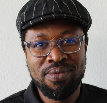Recently, I’ve been engrossed in Hennie van Vuuren’s book, Apartheid Guns and Money, an eye-opening, insightful read into the inner workings and machinations of the apartheid state as well as the private and corporate interests that propped it up, even when it was supposedly isolated and an international pariah.
The book is interesting on so many levels, but one of the things that I found so interesting about it, is that it totally debunks the myth that corruption in South Africa is a post 1994, ANC creation, because it clearly shows how morally bankrupt the apartheid state was and how it relied on a criminal, underworld economy in order to survive.
It shows how the apartheid state was dependent on “respectable” international businesses and individuals in order to survive, despite its illegitimacy within the global geopolitical order. It also gives one a window into the very close links between what we now view as legitimate business people from the Afrikaans community who now run businesses of global impact and scale and the National Party, and how state procurement was used by the Nats to prop up these business people and their businesses, who now funnily enough in their current role as “legitimate business”, are the biggest critics of the ANC government and its propensity to give business opportunities to “cadres” as they call it. As controversial author Noam Chomsky says, “for the powerful, crimes are those that others commit.”
As a final note on this book, it also totally exposes the myth that the apartheid state was an efficient, effective machine that ran like clockwork, totally contrary and superior to what we are experiencing in contemporary SA and the fallacy that many in SA today consciously or subconsciously subscribe to that corruption is a racial phenomenon (anyway, I’ll save you from my “irritating racial diatribe” this week, as I know that’s what you think I’m all about, so just bear with me a minute).
These are some of the thoughts that have come to my mind as I have been going through this book, but apart from that, one of the things that it has done for me is to cause me to reflect a little more deeply on the highly noxious phenomenon of state capture in present day SA.
It has caused me to reflect on the fact that, in line with the testimony given by Lord Peter Hain at the State Capture Commission a few weeks ago, state capture and the economic crimes that result from it, is not possible without the facilitatory, enabling role played by the private sector and big international corporations.
Without this “massive infrastructure” provided by the private sector, big business and international corporations, state capture would not have been possible, despite the best efforts of the Gupta brothers. As so aptly stated by Lord Hain at the State Capture Commission, it is these “professional enablers” who facilitated the capture of the South African state by the likes of the Gupta brothers and as a result, they must take responsibility for the damage caused and actually take pro-active steps to prevent such shady, underhanded dealings from happening to the detriment of the innocent, taxpaying citizen in future.
As we look at the current poorly state of our parastatals and the negative impact that this has on our economic trajectory, yes, we must apportion blame to government for wrong decisions made, failed cadre deployment etc. but we must not stop there. We must hold the private sector, global corporations and the likes equally responsible for enabling and facilitating the capture of our parastatals and sucking them dry to the point where they are now on their knees.
In fact, the collusion between big corporations, private individuals and families like the Gupta brothers and some politicians is a significant reason why we find so many of our government departments and entities collapsing, much more than BEE and “tenderpreneurs”, as we derogatively call them are responsible for this perilous state, we find most of them in.
If you don’t believe me, then I challenge you to find out where the majority of the procurement spend of parastatals like Eskom, SAA, Denel and the likes goes. To the surprise of many, one would find that it is the big corporations, the established businesses that take up most of the procurement from state entities and departments and as a result they are the ones most responsible for the corruption and malfeasance that has beset the South African state, and not “BEE types” or “tenderpreneurs” as is the common misperception (now don’t get me wrong, they have also played their own destructive role, but my argument is that it’s minute when compared to that of big business and global corporations).
So, we have to focus on and take action against these “professional enablers” in Lord Hain’s words, if we are to reclaim the South African state from private interests and ensure that it does indeed focus on promoting and advancing the common good.
Mugabe Ratshikuni works for the Gauteng provincial government; He is an activist with a passion for social justice and transformation. He writes here in his personal capacity.

